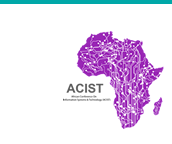Location
Harare, Zimbabwe and Virtual
Start Date
13-9-2024 11:00 AM
End Date
13-9-2024 11:25 AM
Description
The need for financial inclusion in Africa, particularly for marginalised groups like women and small businesses, highlights the importance of leveraging Artificial Intelligence (AI). This study provides a bibliometric analysis of AI's integration into African financial services from 2003 to 2023. The key results show a significant increase in AI use, particularly in fraud detection, credit risk prediction, and stock market volatility forecasting, with 49% of the research coming from South Africa, Nigeria, and Tunisia. However, areas like financial development management, inflation control, and gender disparities in loan access remain underexplored. The emphasis has been on the technical implementation of AI at the expense of important African contextual issues such as ethics, infrastructure barriers, data privacy, data sovereignty, and the risk of excluding marginalised groups. The study recommends expanding AI applications to drive financial inclusion, strengthening regulatory frameworks for ethical AI deployment, and addressing gender inclusivity and financial development management.
Trends from 20 years of Artificial Intelligence in Financial Services in Africa
Harare, Zimbabwe and Virtual
The need for financial inclusion in Africa, particularly for marginalised groups like women and small businesses, highlights the importance of leveraging Artificial Intelligence (AI). This study provides a bibliometric analysis of AI's integration into African financial services from 2003 to 2023. The key results show a significant increase in AI use, particularly in fraud detection, credit risk prediction, and stock market volatility forecasting, with 49% of the research coming from South Africa, Nigeria, and Tunisia. However, areas like financial development management, inflation control, and gender disparities in loan access remain underexplored. The emphasis has been on the technical implementation of AI at the expense of important African contextual issues such as ethics, infrastructure barriers, data privacy, data sovereignty, and the risk of excluding marginalised groups. The study recommends expanding AI applications to drive financial inclusion, strengthening regulatory frameworks for ethical AI deployment, and addressing gender inclusivity and financial development management.



